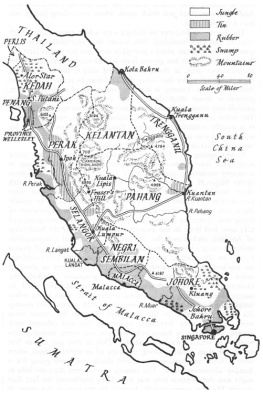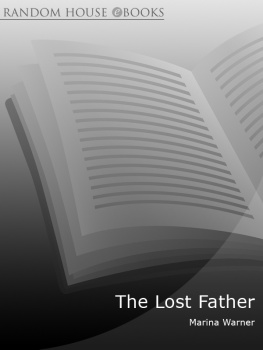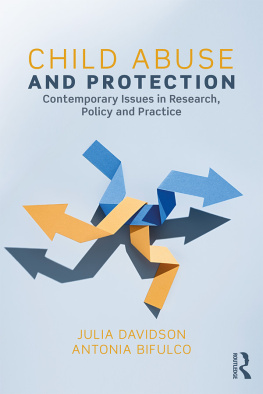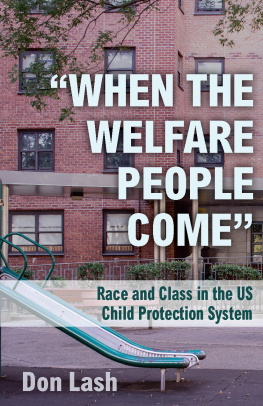The emotional politics of social work and child protection
Joanne Warner
First published in Great Britain in 2015 by
Policy Press University of Bristol 1-9 Old Park Hill Bristol BS2 8BB UK Tel +44 (0)117 954 5940 e-mail
North American office: Policy Press c/o The University of Chicago Press 1427 East 60th Street Chicago, IL 60637, USA t: +1 773 702 7700 f: +1 773-702-9756
Policy Press 2015
British Library Cataloguing in Publication Data
A catalogue record for this book is available from the British Library
Library of Congress Cataloging-in-Publication Data
A catalog record for this book has been requested
ISBN 9781447318460 ePub
ISBN 9781447318477 Kindle
The right of Joanne Warner to be identified as author of this work has been asserted by her in accordance with the Copyright, Designs and Patents Act 1988.
All rights reserved: no part of this publication may be reproduced, stored in a retrieval system, or transmitted in any form or by any means, electronic, mechanical, photocopying, recording, or otherwise without the prior permission of Policy Press.
The statements and opinions contained within this publication are solely those of the author and not of the University of Bristol or Policy Press. The University of Bristol and Policy Press disclaim responsibility for any injury to persons or property resulting from any material published in this publication.
Policy Press works to counter discrimination on grounds of gender, race, disability, age and sexuality.
Cover design by Soapbox Design, London
Readers Guide
This book has been optimised for PDA.
Tables may have been presented to accommodate this devices limitations.
Image presentation is limited by this devices limitations.
To my mother, Norma, and my late father, Derek, with love and thanks for everything; and to David,
Daniel, Henry and Catherine, with much love
Contents
Notes on the author
Joanne Warner is a senior lecturer in social work in the School of Social Policy, Sociology and Social Research at the University of Kent. She started her career in community development work and as a generic social worker before becoming an academic. Her research interests are in the sociocultural aspects of risk, care and social welfare and the use of qualitative documentary analysis as a research method. Her other recent research projects include a project in collaboration with mental health service users to explore social spaces such as cafes and libraries. Joanne lives in London with her partner and two children.
Acknowledgements
There are many people to thank for their help with this book and for their support along the way.
My sister, Jane Nellist, kept me in touch with unfolding events in Coventry and my brother-in-law, Richard Draeger, carried out some newspaper research for me in Norfolk. Liz Beddoe was a great help in the research on New Zealand. Katrina and Duncan, and Maria and Ria, have all been a much-needed source of practical help and support.
Thank you to my colleagues in the School of Social Policy, Sociology and Social Research at the University of Kent, particularly to the social work team especially Anne Kelly and Alisoun Milne for enabling the study leave that made this book possible. Julia Twigg was a source of encouragement concerning the basic idea for the book, and has been an invaluable informal mentor to me at Kent. Thanks also to Nigel Parton.
Thanks to the team at Policy Press, who have been brilliant, especially Isobel Bainton. The comments by the anonymous reviewer of the first draft were helpful and constructive.
Finally, thank you to my partner, Eleanor Draeger, who has been so tolerant in living with the rollercoaster I have been on in the course of writing this book and who proofread everything. Our two young children, Henry and Catherine, were a major source of inspiration for this book but the price of it has been that we have missed far too much playtime. The final big thank you goes to them.
Some of the material in this book first appeared in two previously published journal articles: Warner, J. (2013) Social work, class politics and risk in the moral panic over Baby P, Health, Risk and Society , 15(3), 217-33 (www.tandfonline.com/doi/full/10.1080/13698575.2013.776018); and Warner, J. (2013) Heads must roll? Emotional politics, the press, and the death of Baby P, British Journal of Social Work , first published online 4 March 2013 (www.bjsw.oxfordjournals.org/content/44/6/1637).
ONE
Introducing emotional politics
Introduction
For some 40 years, social work and child protection in Britain and elsewhere have been subject to an accelerating cycle of crisis and reform. Each crisis phase involves intense media and political scrutiny and public outcry following the serious harm or death of a child through extreme abuse or neglect. Media reports are often characterised by detailed accounts of the childs suffering, together with hostile coverage of the social workers and agencies that failed to protect them from harm. Further intensive media coverage follows the publication of any inquiry or serious case review into the role and conduct of agencies and professionals in the case, and the circumstances surrounding what happened. The reform phase of the cycle is usually marked by a fresh political commitment to make changes to ensure that such events do not happen in the future. Paradoxically, despite its apparent abject failures and the intense anger and hostility directed towards it, social works role in child protection appears to remain secure.
My aim in this book is to add to our understanding of what drives the seemingly relentless cycle of crisis and reform in social work and child protection and to consider new ways in which it can be challenged. By introducing the concept of emotional politics, I explore the way in which emotions such as anger, disgust and shame over the abuse of children are not only personally and subjectively felt, but are also generated and experienced collectively. Emotions are thereby relational, cultural and deeply political. They are embedded in the entire child protection system and in the wider context for its development, including:
- policy making;
- government and political institutions;
- media stories;
- official documents such as inquiry reports and serious case reviews;
- child protection agencies;
- social work education;
- families and communities.
I argue that emotions in this sense are not free-floating and haphazard but structured and stratified, such that they constitute an emotional regime.
The book is concerned with the way politics and emotions operate together, both to generate crises and to compel political leaders to promise a future in which this childs death will be the last. Rather than seeing emotions as the mere by-products of events, my focus is on how emotions are generated, mobilised and reflected in the public sphere; principally through political leaders, the media and official documents. Emotions can thus be seen as the driving force behind policy and practice as currently constituted. But just as emotions drive the current system, they can also drive change, and in this book I consider how a different emotional politics might operate.













